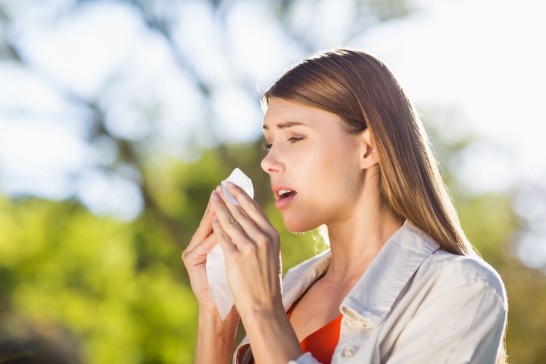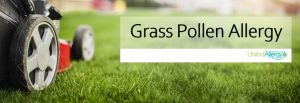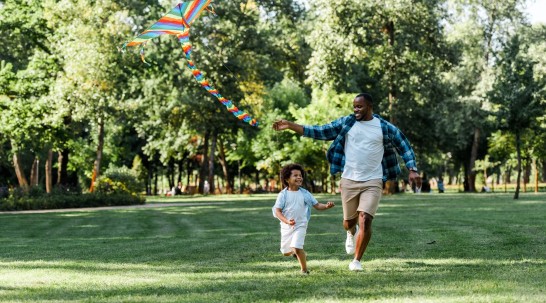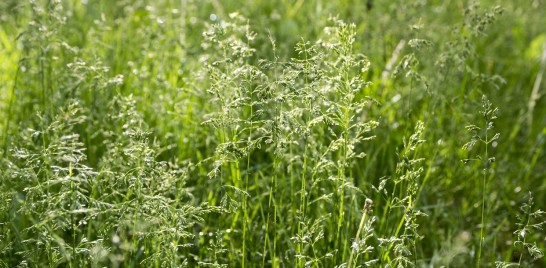A Deep Dive into Summertime Allergies
As the warmth of summer graces us with its presence, many of us are eager to embrace outdoor activities and soak up the sun. However, along with the barbecues, beach days, and sunny strolls, comes an uninvited guest: allergies. For many people, summer is synonymous with sniffling, sneezing, itchy eyes, and other symptoms that signal the onset of seasonal allergies. Let’s delve into what exactly causes summertime allergies, how they impact us, and what we can do to manage them better.
The Cause: Summer Allergens
Seasonal allergies, also known as hay fever or allergic rhinitis, are triggered by allergens—substances that the immune system mistakenly identifies as harmful. When the body encounters these allergens, it responds by producing a type of antibody called Immunoglobulin E (IgE), leading to an allergic reaction.
During the summer months, the primary culprits are pollens from grasses, weeds, and trees. While spring is most commonly associated with tree pollen allergies, summertime often sees a rise in grass pollens (such as Timothy grass, Kentucky bluegrass, and ryegrass) and weed pollens (like ragweed, sagebrush, and pigweed). Mold spores, which thrive in warm, humid environments, also become more prevalent during summer, contributing to allergic symptoms.
The Impact: Symptoms of Summertime Allergies
The allergic reaction sparked by these allergens can result in a variety of allergy symptoms, many of which can be quite discomforting. These symptoms typically include:
- Sneezing
- Runny or congested nose
- Itchy, watery, or red eyes
- Coughing
- Itchy throat or ears
- Fatigue
These symptoms can severely affect an individual’s quality of life, leading to disturbed sleep, irritability, and an inability to fully enjoy outdoor activities during the summer season.

Managing Summertime Allergies
Various strategies can help manage the symptoms of seasonal allergies and make your summer a lot more enjoyable.
1. Awareness and Avoidance
Stay updated on local pollen forecasts available online such as the United Allergy Service Pollen Forecast or through mobile apps such as myAllergyPal®, and try to limit your outdoor activities on high pollen count days. Additionally, during these peak periods, keep your windows closed and use air conditioning to keep allergens at bay.
2. Allergy Medication
Over-the-counter antihistamines can be effective for relieving allergy symptoms like sneezing, itching, runny nose, and watery eyes. Decongestants may also help to relieve a stuffy nose. For those with severe symptoms, a provider may prescribe stronger medications or recommend allergy shots (immunotherapy).
3. Good Hygiene Practices
After spending time outdoors, be sure to shower and change into fresh clothes to remove any pollen that may have settled on your skin and clothing. It’s also beneficial to wash your hands often and avoid touching your face, especially your eyes, to prevent direct introduction of allergens.
4. Home Environment Care
Use high-efficiency particulate air (HEPA) filters in your home to trap pollen and other allergens. Regular cleaning and vacuuming also help to keep your indoor environment allergen-free.
The Solution: Lasting Allergy Relief
Despite best efforts to manage allergy symptoms, over-the-counter medications and preventative measures might not be enough for some individuals. In such cases, it’s crucial to take the next step—getting tested for allergies. By identifying specific triggers, you can not only avoid those allergens but also receive targeted treatment for more effective symptom relief.
Through your provider at an allergy center near you, United Allergy Services offers comprehensive allergy testing that can pinpoint the exact allergens causing your discomfort. This personalized approach allows for a more accurate diagnosis and effective treatment plan.
For some, the path to relief could lie in immunotherapy, a treatment approach that helps the body build tolerance to allergens. United Allergy Services offers allergy shots (subcutaneous immunotherapy) and allergy drops (sublingual immunotherapy) tailored to your specific allergen sensitivities. Over time, immunotherapy can help to reduce or even eliminate your allergic responses, enabling you to fully enjoy summer.
In conclusion, while summertime allergies can put a damper on this vibrant season, there are many avenues to manage and overcome them, including avoidance, medication, and medical treatments like immunotherapy. Don’t let allergies hold you back—explore options with your provider at a local allergy center to find the best treatment path for you.
Summer Allergies
What do you look forward to in the summer months? I bet it isn't summer allergies! Whether you are planning to be the grill master or the ultimate host of the patio celebration, we have tips to help you prepare. Today, let’s discuss some common summer allergens you may encounter when enjoying the sun or attending summer celebrations.
During the summer months, many allergy sufferers are wary of grass pollen. They are the most common seasonal allergy triggers and are heaviest in May through August. Don't forget to check local pollen counts to determine the density of pollen in the air on any given day. Read more about Grass Pollen Allergies and avoidance tip in our blog post here.
Skin Reactions
With many summer celebrations occurring outside or around the pool, sunscreen is important to discuss. We all know sunscreen is a crucial part of summer safety, but sometimes it can cause a reaction much worse than a sunburn. Individuals can have a contact allergy to the sunscreen itself and a rash will appear where it was applied. A reaction that appears after applying the sunblock and being exposed to the sun is also possible. Apply a quick and simple patch test before applying the product to your whole body. Decide on a small area like the wrist, apply the product, and wait at least 24 hours to make sure the skin does not react.
Also, while chlorine isn't an allergen, it is an irritant and can cause problems with eye and nose itching. It can also cause breathing problems in people with asthma. If undesired symptoms are occurring while swimming, jump out of the pool. Take off your suit and wash the affected area with clean water and soap to remove traces of the remaining irritant. It is a good idea to have a rescue inhaler on hand, if prescribed to you, to calm any respiratory symptoms should they occur.
Stinging Insects
Stinging insects such as bees, wasps, hornets, and yellowjackets are most active during summer and early fall. Also fire ants are active all year round in many southern parts of the United States. People who know they are at risk for an allergic reaction to stinging insects should always carry two doses of auto injectable epinephrine. It is important to have the ability to access the injections within 60 seconds if necessary. Try to avoid the stings and bites before they occur by refraining from walking outdoors barefoot, especially in grassy areas. Skipping perfume or sweet-smelling body sprays or lotions is another good avoidance technique. Also, do not drink out of cans or bottles that have sat open and unattended. Sometimes insects can get trapped inside. Finally, when choosing the perfect outfit for the holiday weekend’s plans, leave any vivid, floral clothes in the closest.
Asthma Concerns
Fireworks, although beautiful and breathtaking, can create smoke and small particulate matter can trigger asthma. If you suffer from asthma, consider watching the fireworks from an indoor location. Similar to fireworks, smoke from grills, bonfires, firepits, or outdoor fireplaces can also trigger asthma. Try to avoid the direct smoke pathway, leave significant distance between yourself and the source of the smoke, Finally, other scented products utilized during outdoor gatherings can also contribute to air pollution and can trigger asthma. If hosting a party, contact your guests and ask if certain things like scented insect repelling candles or torch oil trigger negative responses for them.
Finally, what would a summer celebration be without all the tasty food and drinks? If food allergies are present, it may be easier to pack your own meals or snacks to have readily available. Preparing food yourself is always the safest option. If it isn't feasible to do so, you still have options. It is helpful as a host to ask about any food allergies or dietary restrictions when inviting guests to the event. It is also very helpful to label what individual dishes or offerings are and include a high-level recipe or ingredient list. That way guests can privately identify safe selections off the menu and enjoy immersing themselves in the full experience without the worry of unknown exposure.
Amanda Hofmann, MPAS, PA-C, is a graduate of Duquesne University, in Pittsburgh, PA. After spending 8 years in clinical practice, she joined United Allergy Services where she is currently the Vice President of Clinical. Amanda is also the past president of the Association of PAs in Allergy, Asthma, and Immunology.
United Allergy Services is also on Facebook, LinkedIn, or Twitter. See other interesting and related articles on the UAS Blog.
Grass Pollen Allergy: Making the Most of Summer
Summer is finally here! Longer days, days spent by the beach or the pool, and late nights catching fireflies are on the horizon. Allergies are usually associated with the spring or fall because pollen is most active during these times. However, summer allergies, especially to grass, are also common. This grass pollen allergy can cause some of the same troublesome allergy symptoms as in other seasons.
Allergy Season
Grass begins to pollinate in the late spring, typically April or May in the northern part of the country. The pollination period in the north will then typically continue through June or July. However, in southern regions, grasses may pollinate throughout many seasons and could trigger symptoms throughout the year. These pollination time periods are when those who suffer from a grass pollen allergy notice their symptoms at their worst.
Types of Grass Pollen
There are hundreds of different kinds of grasses throughout the United States. Fortunately, not all of them are the source of summer sneezing, congestion, and itchy eyes. Some grass pollen types are small, light, dry and can travel for hundreds of miles by the wind. One group of grasses, referred to as the northern pasture grasses, cause more allergy problems than any others. These grasses include:
- common timothy grass
- sweet vernal grass
- orchard grass
- perennial rye grass
- Kentucky bluegrass
Another type of grass, bermuda, is a southern grass and is responsible for many troubling summer grass allergy symptoms. Johnson grass is another main culprit for grass pollen misery.

Options for Homeowners
While common Bermuda grass usually triggers allergies, some hybridized versions produce little to no pollen. One common type of hybrid Bermuda grass referred to as the "Princess 77" variety is available for homeowners. Other good hybrid Bermuda grass varieties include "Tifway" and "Santa Ana". Buffalo grass may be a good warmer climate option. This warm-season grass survives droughts and requires little supplemental watering, making it ideal for areas with watering restrictions. Types like the "UC Verde" or "609" produces only female plants, eliminating the problems of flowering and producing pollen. Although less commonly found, this is ideal for grass pollen sufferers.
Measuring Grass Pollen Counts
Those that suffer from a grass pollen allergy can benefit from checking their local pollen counts regularly. Pollen counts are determined collecting pollen on special rods. The pollen is then counted under a microscope. The pollen count is then calculated in grains per cubic meter of air. Pollen counts tend to be the highest early in the day, or often when the wind picks up just before a large rainstorm.
If you like dancing in the rain, or jumping in rain puddles, however, you are in luck. During a rainstorm and immediately following, pollen becomes still and dormant due to the rain making it damp and heavy. As the air becomes warm and dry following the storm, the pollen count will become potent again
Manage Your Grass Pollen Allergy
Pollen counts are never zero, nor will an allergy sufferer truly be able to avoid grass pollen in the summer. However, some practices may help decrease pollen exposures. For instance, utilizing the air conditioner while keeping the windows and doors to the home and car closed. Also, utilizing the dryer rather than the fresh breeze to dry clothing will help to decrease pollen exposures. It is especially important to keep windows closed when you or someone close mowing their grass.
Although it may seem like a good idea to avoid cutting the grass as much as possible, mowing grass often and keeping grass short actually causes the grass to release less pollen into the air. If a nonallergic friend or family member isn’t available to assist in cutting your grass, consider wearing a mask. Wearing masks will help to minimize the amount of pollen reaching the nasal passages. It is greatly beneficial for grass pollen sufferers to wear a mask when cutting grass or doing other yardwork.
Other Helpful Tips
Those with a grass pollen allergy should try to avoid heavily dense grassy areas, especially in early summer when pollen is the most dense and abundant. Although summer brings warmer temperatures. when you are out working in the yard, out at a park, or hiking it is recommended to wear long pants or long sleeve shirts in a light breathable fabric. This added layer of protection helps reduce the amount of pollen that comes in direct contact with your skin. Similarly, wearing sunglasses and hats also reduce pollen that contacts eyes or nestles in your hair.
Grass pollen allergy sufferers should also make a habit of changing their clothes after coming in from being outdoors, and bathing prior to getting into bed/laying on upholstered furniture. Wash bedding in very hot, sanitizing cycles once a week in peak pollen seasons. It is also beneficial to remove shoes before entering your home. And do not forget your pets! They can be major sources of tracking grass pollen into your home. Make sure to wipes them down with a wet cloth or towel before they enter your home, and make sure to bathe them more frequently in high pollen seasons. And although not always feasible, the ability to keep your pets from sleeping in your bed, in your bedroom, or on your upholstered furniture will also greatly benefit you if you suffer from grass pollen.
Symptom Relief is an Option
If someone is unsure whether grass pollen is a trigger for their troublesome nasal congestion, runny nose, postnasal drip, sneezing, and itchy watery eyes (take our allergy quiz here), seeing their provider for an allergy test may provide the clarity they are looking for!
Amanda Hofmann, MPAS, PA-C, is a graduate of Duquesne University, in Pittsburgh, PA. After spending 8 years in clinical practice, she joined United Allergy Services where she is currently the Vice President of Clinical. Amanda is also the past president of the Association of PAs in Allergy, Asthma, and Immunology.
United Allergy Services is also on Facebook, LinkedIn, or Twitter. See other interesting and related articles on the UAS Blog.
Independence from Summer Allergies
The Fourth of July is only one week away and that likely means many are making or finalizing plans to be outside. Are you planning to be the grill master? How about the fireworks expert? Maybe you are the ultimate host of the celebration surrounded by family and friends enjoying fireworks, picnics, swimming, and outdoor activities. Here are some of the most common summer allergy tips to for attending Fourth of July celebrations. After all, it is your right to have independence from summer allergies!
Number One Summer Allergy: Grass Pollen
During the summer months, many allergy sufferers are wary of grass pollen. They are the most common seasonal allergy triggers and are heaviest in May through August. Those that suffer from grass pollen allergies can benefit from checking their local pollen counts daily. Pollen counts tend to be the highest early in the day or as the wind picks up just before a large rainstorm.
Also, try to offer guests an indoor option during your outdoor celebration if possible. Try to offer a portion of the area where guests can sit away from tall/dense grass or shrubbery. Another options would be a non-grass surface like a deck or patio. To avoid bringing those pollens inside after a great celebration, take a shower or bath before hopping into bed. This will help rinse off any sticky allergens stuck to your body or hair before they stick to your bedding.
Summer Skin Allergy: Sunscreen Reactions
Many celebrations occur outside or around the pool, so sunscreen is important to discuss. While sunscreen is a crucial part of summer safety, sometimes it can cause a reaction much worse than a sunburn. A contact allergy to the sunscreen may present as a rash appearing where it was applied. Or it could be a reaction that appears after applying the sunblock and being exposed to the sun.
To avoid a sunscreen reaction, apply a quick and simple patch test before applying the product to your whole body. Decide on a small area, like the wrist, and apply the product. Wait at least 24 hours to make sure the skin does not react.
Summer Venom Allergy: Stinging Insects
Similar to sharing the festive star-spangled celebrations with pollen and sun, consider insects as well. We know stinging insects such as bees, wasps, hornets, and yellowjackets are most active during summer and early fall. Also, fire ants are active all year round in many southern parts of the United States.
For many of us stings and bites can be uncomfortable and painful. However, there are many picnic guests that have life-threatening reactions that can result from a sting or bite. People who know they are at risk should always carry two doses of auto injectable epinephrine. They should have the ability to access it within 60 seconds if necessary. Try to avoid the stings and bites before they occur by refraining from walking outdoors barefoot, especially in grassy areas. Another helpful trick is to skip perfume or sweet-smelling body sprays or lotions. Also, drinking from cans or bottles that have sat open and unattended should be avoided because sometimes insects can be an unpleasant surprise. Finally, when choosing the perfect outfit for the holiday weekend, leave your vivid, floral clothes in the closest.
Summer Asthma Concerns
When we think of the Fourth of July, firework displays lighting up the sky quickly come to mind. Fireworks, although beautiful and breathtaking, can create smoke and small particulate matter. This can trigger asthma for some, taking their breath away in a not so enjoyable way. If you suffer from asthma, consider watching the fireworks from an indoor location. Similar to fireworks, smoke from grills, bonfires, firepits, or outdoor fireplaces can also trigger asthma for some. Try to avoid the direct smoke pathway and leave significant distance between yourself and the source of the smoke.
Other scented products utilized during outdoor gatherings can also contribute to air pollution and can also trigger asthma. If hosting a party, it would be helpful to contact your guests and ask if certain things like scented insect repelling candles, scented tiki torch oil, odor hiding fragrances or air fresheners trigger any negative responses for them.
If there is a swimming pool, remember that while chlorine isn't an allergen, it is an irritant and can cause problems with eye and nose itching. It can also cause breathing problems in people with asthma. If undesired symptoms are occurring while swimming, jump out, take off your suit and washing the affected area with clean water and soap to remove traces of the remaining irritant. You should have a rescue inhaler on hand, if prescribed to you, to calm any respiratory symptoms should they occur.
Summer Food Allergy Considerations
Finally, what would a summer celebration be without all the tasty food and drinks? If food allergies are present, it can make attending picnics and barbeques easier to pack your own meals or snacks to have readily available. Preparing food, yourself is always the safest option, however, it may not be feasible may not allow you to feel you are enjoying all the perks of a summer celebration. It is helpful as a host to ask about any food allergies or dietary restrictions when inviting guests to the event. It is also very helpful to label what individual dishes or offers are and include a high-level recipe or ingredient list. That way guests can privately identify safe selections off the menu in and will allow them to enjoy immersing themselves in the full experience without the worry of unknown exposure.
Amanda Hofmann, MPAS, PA-C, is a graduate of Duquesne University, in Pittsburgh, PA. After spending 8 years in clinical practice, she joined United Allergy Services where she is currently the Vice President of Clinical. Amanda is also the past president of the Association of PAs in Allergy, Asthma, and Immunology.
United Allergy Services is also on Facebook, LinkedIn, or Twitter. See other interesting and related articles on the UAS Blog.




